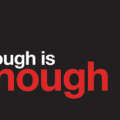I could tell this was not going to be a typical meeting with a college representative. He walked into my office with absolutely no hurry, as if this was all he had to do all day, and talked about his school from the heart, not from a memory-committed checklist of things someone else told him to say. When I asked questions, he left a space between when I stopped talking, and when he started his answer, never once referring me to the school’s website, or the college catalog. This was clearly a guy who knew his school as well as he knew his middle name.

It was also notable that he didn’t talk about his school in some theoretical abstract. We do that a lot in college admissions, where we talk about a college in the third person, like it’s some kind of god. He mostly talked about the students at his school, what they were doing, what they liked about being there. He knew that’s what makes the college experience work for a student—who you go to school with. He wasn’t going to waste my time reciting scores and rankings, because Rugg’s could tell me about scores, and rankings were, well, pretty pointless. If you have time to talk with someone face-to-face, the conversation should be a giving of self, not of data, and that meant talking about things that mattered. What matters most in college is the students.
After he said everything he thought I should know, he got up and gave me his card. As I recall, he said something about how he’d like to hear from me, but the university had made it kind of hard to get hold of him, with a student aide and a secretary standing between him and every incoming call, but he urged me to persist. After he’d left, I read his card, and realized I’d just spent forty-five minutes talking to a Director of Admissions who had made a cold call to my high school.
That was my introduction to Tom Weede, who passed on earlier this month, leaving this world and our profession all the poorer. The outpouring of loss has come from all circles of our field, and it all contains one common message; Tom was the rare person who not only felt you mattered; he made sure you knew you mattered. He trusted you with his opinion, and trusted that you would step up and let him know how you felt in turn, even if you saw things differently. His advocacy in the profession was focused on students, and when he engaged you in conversation, you felt, as George Bailey once said, that he knew you all the way to your back collar button.
Tom’s come to mind quite a bit this summer, and not just because of his passing. I’ve been besieged by a number of students and parents flooding my office with requests to make college plans, and they’re all ninth and tenth graders. One father called and insisted he had to meet with me right away, since his son was a junior, and had no college plans at all. The student’s name wasn’t familiar to me, so I looked him up. Turns out he was a sophomore, but since his father called the day after school was over, calling his son a junior made things sound more important, I guess.
That’s the kind of month it’s been. One parent wants to meet to talk about “college strategy,” another one is convinced his ninth grader’s chances at graduate school are already shot because the student has no plans for this summer. It’s easy enough to get caught up in the mania the media is peddling as college readiness, but it’s never hit the ninth and tenth graders like this before. Worse, it seems to be hitting their parents, and too many of them are succumbing to the herd mentality of college angst, abandoning their post as sentinels of their children’s youth.
If there’s any remedy to this, I’d like to think it’s the calm, listening voice of the Tom Weedes that are still with us. Tom did most of his preaching to admissions officers, and none of us were smart enough to ever ask him if he’d thought about saying this to kids and families. Since similar voices are doing the same thing, it’s time to ask them to broaden their scope, before SAT flash cards become the in gift for bar mitzvahs.
Voices like Ken Anselment, Heath Einstein, and Tamara Siler do a very nice job of reminding colleagues that that the college selection process is all about the kids. What’s needed now is for them to share their insights with a larger audience, giving kids permission to be kids. It would be a great way to honor Tom’s memory. Better still, it would be the right thing to do for our world.



